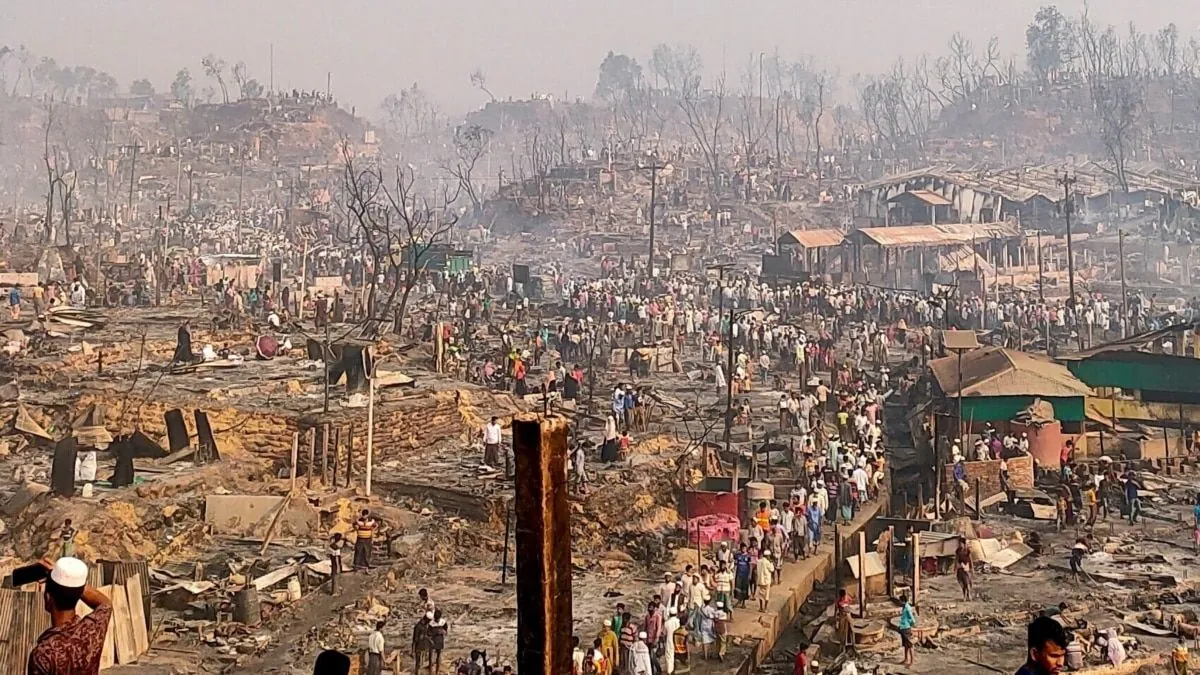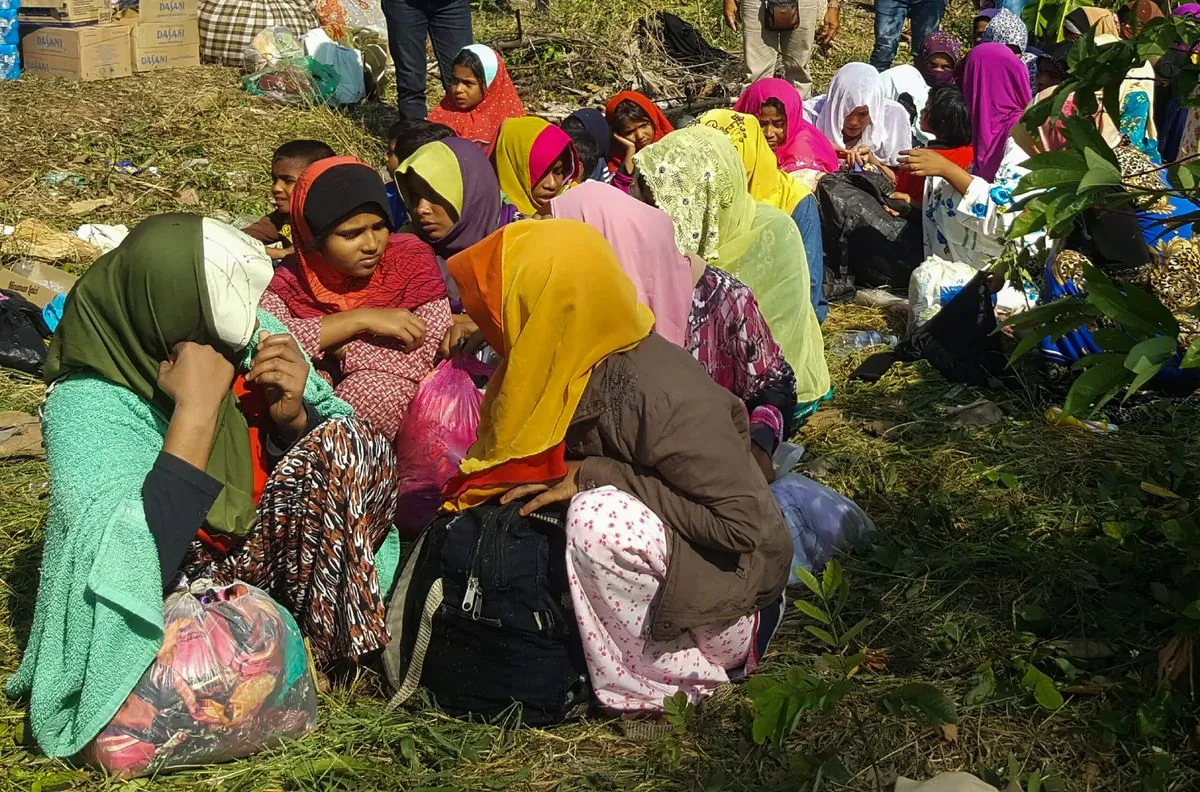Bangladesh Urges Swift Resettlement of Rohingya Refugees Amid New Influx
Bangladesh's interim government calls for expedited third-country resettlement of Rohingya refugees as violence in Myanmar's Rakhine state drives new arrivals. Over 1 million refugees face challenges in overcrowded camps.

Muhammad Yunus, the interim government head of Bangladesh, has called for an accelerated process of third-country resettlement for Rohingya Muslims residing in the country. This appeal comes as a fresh wave of refugees flees escalating conflict in Myanmar's Rakhine state.
In recent months, approximately 8,000 Rohingya Muslims have sought refuge in Bangladesh, escaping intensified clashes between Myanmar's ruling junta and the Arakan Army, a powerful ethnic militia. This new influx adds to the already overwhelming number of over one million Rohingya refugees living in crowded camps in Bangladesh's Cox's Bazar district, most of whom fled a military-led offensive in Myanmar in 2017.
The Rohingya, a Muslim ethnic minority group, have faced decades of discrimination and statelessness in Myanmar. Many lack official documentation, making it challenging to prove their origins and return to their homeland, where they are largely denied citizenship and other fundamental rights.
During a meeting with the International Organization for Migration (IOM), Yunus, who serves as Chief Adviser to the interim government, emphasized that the "resettlement process should be easy, regular, and smooth." The Nobel Peace Prize laureate's call for expedited resettlement reflects the growing strain on Bangladesh's resources and infrastructure due to the prolonged refugee crisis.
Abdusattor Esoev, head of the IOM in Bangladesh, reported that the resettlement of Rohingya to third countries resumed in 2022 after a 12-year hiatus. However, the process has only gained momentum this year, according to a statement from the Chief Adviser's office.

The United States has reaffirmed its commitment to resettle thousands of Rohingya, although the process has not yet been accelerated. This commitment is part of broader international efforts to address the Rohingya crisis, which the United Nations has described as a "textbook example of ethnic cleansing."
The recent surge in violence is considered the most severe situation the Rohingya have faced since the 2017 Myanmar military-led campaign, which the UN characterized as having genocidal intent. That crackdown led to the exodus of over 730,000 Rohingya to Bangladesh, creating one of the largest and most densely populated refugee camps in the world.
Mohammad Touhid Hossain, Bangladesh's de facto foreign minister, stated last month that the country cannot accept more Rohingya refugees. He called on India and other nations to take in more of those fleeing violence and urged the international community to pressure the Arakan Army to cease its attacks on the Rohingya in Rakhine state.
The Rohingya crisis continues to highlight the complex interplay of regional politics, humanitarian concerns, and the challenges of managing large-scale refugee populations. As Bangladesh seeks international support and expedited resettlement solutions, the plight of the Rohingya remains a pressing issue that requires coordinated global action and sustained attention to ensure the safety and well-being of this vulnerable population.


































